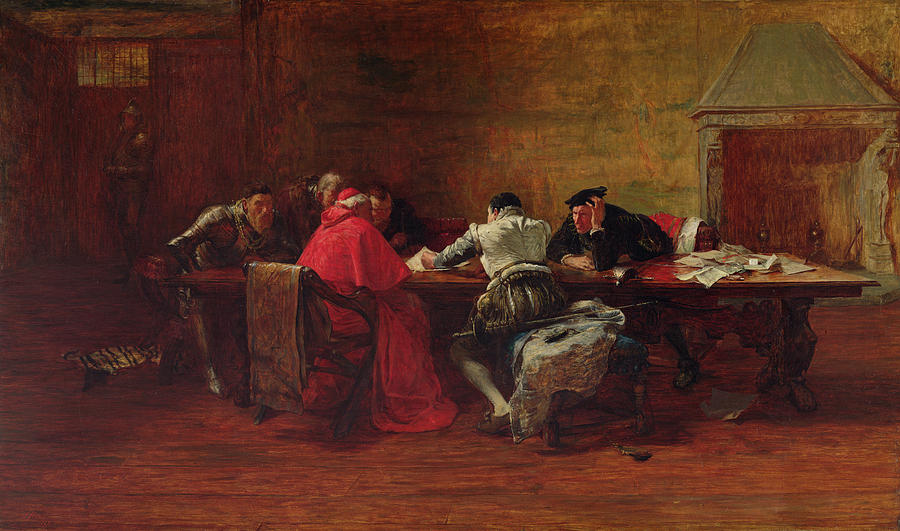Divide and Conquer? - Yes, but there is more to it
 •
by
•
by GregoryG

Dear esteemed readers,
I am writing this article to respond to a well written and in depth analysis of Asteria’s divide and conquer diplomatic strategy, and also I’d like to debate some of the points made.
It is a widely accepted concept, that most Asteria groups ought to present themselves to the world as a united front, if they hope to achieve any medium to long term strategic victory. Which is true on some levels. The anti-Asteria group of countries, involving - but not limited to - Croatia, Andes, certain Pacifica members, and Hungary in theory are able to deal significant % of world damage (comparable to that of Asteria) However even high levels of cooperation and considerable military strength might end up being insufficient, because of the lack of one crucial element.
Iain is not wrong in saying that any hope for changing the current game balance has to start by the anti-Asteria countries forming a core group and work their way up from there. Although I strongly believe that building anything resembling a long term functional alliance, with chances of challenging Asteria is not possible with just the current anti-Asteria block, who are basically the leftovers who Asteria does not want.
Thus such a core group should not focus on trying to win against Asteria. To go even further they and other countries who are dissatisfied with the current state of affairs (which I imagine are more than we initially might think) should not center their thoughts on Asteria at all. They have to think outside the box, and consider, and prepare for unlikely scenarios, and on some level try to facilitate them.
The game has been running almost a decade now, and most countries have a long list of Alliances they’ve been in. Past or present greatness does not guarantee the longevity of any alliance, sooner or later even the mightiest fall to dust for one reason or another (e.g. the dissolution of TWO). Countries, and some of their key leaderships figure however stay on the playing field. And so, they have certain opportunities.

My good friend Spite - I think incorrectly - implied the primarily diplomatic way with which Asteria achieved long lasting dominance is unlike how TWO or Eden did it. TWO (and it’s less cool predecessor, and prototype version ONE) on most levels did exactly what Asteria does now. After founding TWO, we in the alliance leadership slowly and steadily, but deliberately worked on creating divisions between the opposing alliances. My recollection might be hazy regarding the exact timeline, but back then the following happened in principle:
1. We founded TWO with a strong core group (Poland, Serbia, Hungary, UK, Spain, Slovenia) which had excellent leadership and military capabilities
At first CoT (with prominent members like Bulgaria, Macedonia, USA, Chile) was neutral or on some levels even pro-TWO in their cooperation againts our then common enemy EDEN
2. This situation suited us, because this provided us the necessary external military support to achieve our first step to dominance: The breaking of EDEN and so the recruitment of certain former members.
3. After the breakup of EDEN, no formidable opposition remain to CoTWO. And with the recruitment of both Greece and Argentina, and on a pro-TWO level Romania. TWO undisputedly became an unprecedented military powerhouse.
4. The Non-TWO group of countries, including CoT and the remains of Eden had significant diplomatic disputes, and strong other, mostly emotional misgivings about each others.
5. When TWO attacked CoT, not only was the alliance unable to militarily resist, they were utterly unable to carry out diplomatic efforts to create a united front againts TWO.
Sounds familiar , does it not?
It should as Asteria - in my present view at least - is in some ways the successor of TWO. One minor component of TWO’s success is missing from the list above. Something its direct predecessor did. Disregarding existing alliance structures and building it’s core with countries regardless of their momentarily places in the geopolitical structure. First Poland and Hungary, then during later talks Poland+Spain and Hungary+Serbia were members of their respective alliances when the first steps were taken. In fact discussions for a then callled “New World Order” started in late 2010 (November-December) and the alliance wasn’t officially founded until 2011 March.
It was correctly described, that the following are possibilities for a change in the status quo:
-The anti-Asteria group unites in a real way
-Asteria has to implode for internal reasons
But essentially I consider these the two ends of a spectrum of possibilities, and by no means are mutually exclusive.
What then might be the secret missing component in bringing the so widely wished for change.
The utilization of the same exact diplomatic modus operandi Asteria wisely, and expertly applies.
DIVIDE AND CONQUER

How would all this carry out, if a new group wished to shake up the world? I imagine something along these lines:
1. A core group of very few (2-3) countries with relevant military and diplomatic capabilities forms, with the guidance of seasoned leadership figures.
2. This small core, starts first informal, then semi-official talks with other possible future allies, Very importantly including people related to hostile alliances. This part might last long months, and is mostly aimed at building trust between leadership figures, and discussing their ingame dreams and establishing common goals.
3. Day to day communication develops between the most important key figures (from 4-6 countries) without any open military or other ingame cooperation on a country level. However now with the explicit reason of trying to build something new. Possibly more importantly to deliberately fuel conflicts inside alliances on both sides, so that there will be cracks in the structures along which they will shatter.
4. The above steps are done, now one, or more countries does something so outrageous for some of their soon to be ex-allies, the existing groups shatter.
5. This group, having prepared for this for months, swiftly forms into an official alliance, which in fact has existed in secret in all but name.
6. Win.

Either now existing alliance blocks may start this chain of events. Even Asteria members, although admittedly they have fewer reasons to do so. And obviously either Pacifica or anti-Asteria countries would have hard time convincing Asteria members to go into such a tiresome, sometimes risky and controversial venture. But it happened before, and the precedents show, that in the end the involved parties benefited greatly, when then above steps were carefully carried out.
Will this happen? Are there charismatic, inspired, and talented and capable people out there to do magic? Are they up to the challenge?
Only time will tell.
GregoryG


Comments
This solution is one-way.
Sooner or later
It will be done.
Very interesting insights from someone that has literally walked the walk. A good read, thanks!
There were many attempts of an anti Asteria alliance, all of them failed.
People focus too much on what Asteria does instead of what they need to do.
I describe just that. Any alliance trying to win againts Asteria, and being focused on Asteria will fail. So what you are saying is in a way precisely my point.
V+S+E
o7
Quality.
o co cohdzi?
ktoś ma zebrać po cichu ziomków z antyasteria i powoli dążyć do zniszczenia panującego układu
aha Dz
Nailed it, lets hope someone steps (or already has stepped up) to do that.
Good outline, I bet Asteria will welcome a challenger after all this time of boredom and domination 🙂